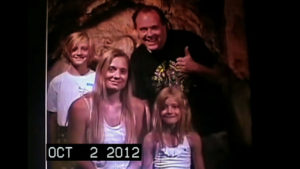Discuss: Wisconsin Film Festival Programming, Part Two of Three
2017 Wisconsin Film Festival, March 30-April 6
Film Guide available at wifilmfest.org/2017»
James Kreul continues the Madison Film Forum tradition of breaking down the “Big Three” categories at the 2017 Wisconsin Film Festival.
The Big Auteurs—International Narrative Features»
Today: The Big Indies—American Narrative Features
The Big Docs—Non-Fiction Features»
For other entries in our 2017 Wisconsin Film Festival coverage, click on #wifilmfest in the navigation menu.
Unlike the Big Auteurs intro, I’ll keep things relatively short for the Big Indies intro. The only significant change from last year to point out is that now it is much easier to find the American independents in the Film Guide (recall last year I questioned the utility of lumping them in with “New International Cinema”). This year features a distinct category, “American Visions,” and overall I’m intrigued not only by the lineup of films but also by the lineup of visiting filmmakers.
The comments below will not include plot descriptions, so please follow the links to the Film Guide for synopses and context.
I’ve discovered that my response to so-called micro-budgeted features has soured as I’ve grown older. When I was in my twenties, I’d like to think that I’d be excited by the possibilities opened up by films like those featured at Micro-Wave Cinema Series. But while I like some of them, now that I’m in my forties I’m finding many of them to be a little too precious, too mannered. That’s why this year the juxtaposition between the micro-budgeted films and the spotlight on Larry Peerce in the Restorations and Rediscoveries series is so useful and enlightening. I’d much rather watch a committed social drama restrained by the technology and conventions of the 1960s (The Incident; One Potato, Two Potato) than an ironic alt-comedy made possible by Vine and digital filmmaking (well, obviously Sylvio). But that might say more about me and where I’m at in life than it says about the films themselves.
 Sylvio | Albert Birney, Kentucker Audley | USA | 2017 | 80 min»
Sylvio | Albert Birney, Kentucker Audley | USA | 2017 | 80 min»
The central internal debate for me this week has been: how much time do I really want to spend trashing Sylvio? I really dislike this film, and almost everything it stands for, intentionally and unintentionally. I had promised myself to avoid using the word “twee” after calling Paul Taylor’s Driftwood “a twee Black Snake Moan.” But once my colleague at Isthmus, Craig Johnson, called Sylvio “twee” twice in one paragraph (in a far more sympathetic take on the film), I kept coming up with descriptions like “twee prop comedy,” and “twee Gallagher.” The more I went down that rabbit hole, the more I realized that simply branding Sylvio “twee” this or “twee” that was as intellectually and emotionally bankrupt as the film itself.
Like I said above, my response might have more to do with where I’m at in life than anything to do with the film. So I concluded that, at most, I’ll write a short capsule review during the Festival.
Sylvio is well made, with appealing performances by co-director Kentucker Audley (doing a twee Jimmy Fallon if that were possible—dammit, I can’t help myself) and Tallie Medel (seen in Nate Silver’s Stinking Heaven). I could not manage much more than a smirk for 80 minutes, but with a crowd the humor might actually produce laughter. Co-director Albert Birney will be present for a Q & A, which I can only imagine will be very pleasant. This is worth seeing, if only because then I’ll have people with whom I can argue about it.
Person to Person | Dustin Guy Defa | USA | 2017 | 84 min»
Now that I have that venom out of my system, let me move on to something I’m genuinely excited about. I just re-watched Defa’s short film, Person to Person (featured at WFF 2014, currently posted on The New Yorker‘s YouTube channel), and I hope he was able to capture a similar vibrant, full of life energy with his new feature film.
The success of that original short depended greatly on the performances from the leads, Bene Coopersmith (L for Leisure) and Deragh Campbell (I Used to Be Darker) mixed with seemingly non-professional actors. With the new feature, Defa will handle significantly more star power, including Michael Cera, Broad City’s Abbi Jacobsen, and Philip Baker Hall. Defa himself seems to be a personable fellow (his performance in Caveh Zahedi’s The Show About the Show is quite amusing), so his scheduled Q & A should provide another highlight this year.
Golden Exits | Alex Ross Perry | USA | 2017 | 94 min»
Wisconsin Film Festival viewers were first introduced to Alex Ross Perry with his feature The Color Wheel, and since then he has completed two relatively high-profile projects: Listen Up Philip (with Jason Schwartzman and Elisabeth Moss) and Queen of Earth (with Moss and Kathertine Waterston). Acclaim was pretty consistent for Listen Up Philip, but more mixed for Queen of Earth. I liked both films, and while Philip played many of the same notes as Color Wheel, I thought Perry broadened his range with Queen of Earth.
If Queen of Earth ventured into Ingmar Bergman territory, preliminary indications (like Mike King’s program notes) suggest that Golden Exits will also venture into Eric Rohmer territory. Regardless of what you think of Perry’s films overall, you cannot deny his ability to write memorable dialogue and work well with actors. This time around his cast includes Schwartzman, Emily Browning, Chloë Sevigny, and Mary-Louise Parker.
 Infinity Baby | Bob Byington | USA | 2017 | 75 min»
Infinity Baby | Bob Byington | USA | 2017 | 75 min»
While Bob Byington has become a regularly featured filmmaker at the Wisconsin Film Festival with Harmony & Me in 2011 and Somebody Up There Likes Me in 2012, I personally hadn’t caught up with his work until the campus screening of 7 Chinese Brothers, starring Jason Schwartzman (who seems to mentioned in this preview as often as Joe Swanberg used to be). I liked 7 Chinese Brothers a lot more than my colleague Edwanike Harbour did in her Madison Film Forum review, but once again your response might be conditioned by your tolerance to recent trends in indie low-key comedy.
Infinity Baby appears to introduce a science fiction premise to Byington’s laid back humor. A new breed of babies never age, and the negative consequences of the innovation soon outweigh the positive ones. Comedy ensues. The cast includes Kieran Culkin, Kevin Corrigan (a favorite since Andrew Bujalski’s Results), Steven Root, Megan Mullally, and, of course, Nick Offerman.
The sole screening of Infinity Baby has already reached rush only status as part of “Nick Offerman Day” on April 4. In addition to his role in Infinity Baby, Offerman has worked with Byington before, including Somebody Up There Likes Me. When the Offerman fans take over the Union South Marquee for the day, the energy should be interesting.
Dark Night | Tim Sutton | USA | 2016 | 90 min»
Independent film scholar and filmmaker Professor J.J. Murphy took the lead in writing the Film Guide program notes for UW alum Tim Sutton’s third feature, Dark Night. Murphy describes Sutton, whose previous work includes Pavilion and Memphis, as “one of the most rigorously formal American indie filmmakers working today.” That alone already distinguishes Dark Night from many of the other indie offerings this year in terms of tone and style.
Tone Madison readers can look for an upcoming review of Dark Night from Grant Phipps (I will post the link here when it is available).
The Hero | Brett Haley | 2017 | USA | 96 min»
More Offermania here, as Offerman co-stars with Sam Elliot in this portrait of a veteran actor looking for a role of which he can be proud. Director Haley and co-writer Marc Basch will be on hand with Offerman for the Q & A.
The Hero is Haley’s third feature film after The New Year (2010) and the Blythe Danner vehicle I’ll See You in My Dreams (2015). The theme of aging performers links the last two features, and in IndieWire Eric Kohn suggests that “Haley may traffic in traditional sentiment . . .[but] the actors elevate it.”
 Fraud | Dean Fleischer-Camp | USA | 2016 | 52 min»
Fraud | Dean Fleischer-Camp | USA | 2016 | 52 min»
In general, I’ve become wary of program descriptions that promise things like a “wild ride” and a “blazing fast mindbender,” especially in the realm of documentary. Last year’s Tickled, for example, just ended up being ethically problematic in its critique of a wildly ethically deficient man. Fraud appears to be a hybrid doc/metafiction/narrative (depending on what part of the Film Guide you’re consulting), and it appeared in some Top Ten lists last year (as noted in the Guide). But Kenji Fujishima at the Village Voice suggests that “Fraud adds up to little more than a provocative but thematically tired stunt,” and John DeFore at Hollywood Reporter concludes that “one suspects most viewers will respond with a shrug, if they sit through it at all.”
Many of the apparent pros and cons of Fraud are conveniently summarized in Chris Lay’s review in Tone Madison. Sometimes such a divided response can lead to very interesting screening experiences. So, we’ll see.
Patti Cake$ | Geremy Jasper | USA | 2017 | 108 min»
This seems to have sufficient indie credibility as a reported crowd-pleaser at Sundance. Sure, I’ll see this, especially since it should provide a good nightcap to the closing night of the Festival on Thursday, April 6.
The screenings do represent a Festival first, however, as far as I can remember. There are two screenings of Patti Cake$, but only one opportunity to see it, Thursday night at 8:30pm. Has the Festival ever scheduled simultaneous screenings of the same film? Perhaps this demonstrates some confidence in the film as a potential closing night hit, much like last year’s The Love Witch and Operation Avalanche. Neither screening has gone to rush tickets only, however, at least not yet.
 The 60 Yard Line | Leif Gantvoort | USA | 2016 | 96 min»
The 60 Yard Line | Leif Gantvoort | USA | 2016 | 96 min»
In general, the Madison Film Forum tends to defer coverage of the Wisconsin’s Own films at the Wisconsin Film Festival to David Klein at LakeFrontRow. If you haven’t already, you should check out David’s series of “5 Questions” for Wisconsin Filmmakers including Michael Collins (Almost Sunrise), James Runde (Patti), Quinn Else (UFO Days), Violet Wang (Brown Girl), Marc Kornblatt (Whad’ya Do Now?), Katherine Acosta (Divided We Fall), Andrew Swant (Silently Steal Away), Diane Moy Quan (Cliff, Superfan!), and, of course, Ryan Churchill, co-writer and star of The 60 Yard Line.
It’s always hard to gauge what sell-out screenings for Wisconsin’s Own films really means, because the films have their own built in audience of cast, crew, friends, and family. And any Packer related film also has an audience that tends to get out of the house for an opportunity to get together and cheer. But the buzz for The 60 Yard Line seems genuine, especially when the April 2 Barrymore Theater screening (a relatively big space) went to rush tickets only. The Festival has added a second screening on April 3 at the Union South Marquee Theater, which should bring out a different crowd.
Restorations and Rediscoveries: Larry Peerce
One Potato, Two Potato | Larry Peerce | USA | 1964 | 83 min»
The Incident | Larry Peerce | USA | 1967 | 107 min»
I’ve written briefly about Larry Peerce’s The Incident in my general overview of the Restorations and Rediscoveries in Isthmus. While technically the film is a studio release (20th Century Fox), it’s best discussed in the context of independent film, especially the relationship between exploitation film and independent drama in the 1960s. I’ve only sampled a small number of Festival films so far, but The Incident is already one of my favorites. I regret not having the opportunity to see it with a crowd; there are several moments that should jolt through the auditorium and make the Q & A session very lively.
As of this writing I’ve only seen a sample of One Potato, Two Potato, but I can confirm that it will also be worth your time. The tone and style of the film is not that far off from an industrial or educational film by Ralph Steiner or Willard Van Dyke. But like several ambitious independent filmmakers of the period, Peerce was able to cross over and garner attention at the Cannes Film Festival and eventual commercial distribution. I (almost) hate to knock Sylvio one more time, but One Potato, Two Potato is great because it has its own kind of energy and is about something. There was no time for hip disinterestedness in 1964. One Potato, Two Potato seems as urgent today as Sylvio seems lax.
